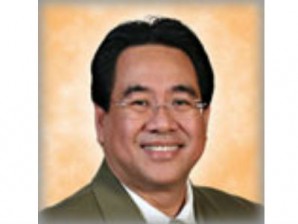IPs protected in Bangsamoro, says lawmaker
COTABATO CITY—The indigenous peoples in areas proposed to become part of the future Bangsamoro entity are not only guaranteed their rights but are also assured of additional rights, Cagayan de Oro Rep. Rufus Rodriguez said here.
Emerging from a consultation on the Bangsamoro Basic Law with members of the Lambangian-Teduray tribe in Upi, Maguindanao, Rodriguez said on Thursday the proposed law is actually “in favor of the Indigenous Peoples in the Bangsamoro because of the additional rights provided (for them).”
Rodriguez is chair of the House of Representatives’ ad hoc committee on the BBL.
“It is very clear that all the rights in the [Indigenous Peoples’ Rights Act (IPRA) of 1997] are already in the BBL and there are more,” he said.
Assistant Secretary Howard Cafugauan of the Office of the Presidential Adviser on the Peace Process, said in a media statement that the protection of IP rights in the BBL “is also in accordance with the United Nations’ Declaration on the Rights of the Indigenous Peoples.”
Article continues after this advertisementHe said under the proposed BBL, the IP community is assured of sectoral representation by providing them an assured seat in the Bangsamoro parliament.
Article continues after this advertisement“Article VII, Sec. 5.3 of the proposed Bangsamoro Basic Law provides for ‘sectoral representatives, constituting 10 percent of the Members of Parliament, including two (2) reserved seats each for non-Moro indigenous communities and settler communities,’” Cafugauan added.
Under the proposed BBL, an office for the IPs would be created by the Bangsamoro parliament.
“This ministry of indigenous peoples is at the cabinet-level. This is how IP rights are significantly recognized and respected in the BBL,” Cafugauan said.
Lanang Ali Jr., consultant of the Bangsamoro Transition Commission, said the IP communities within the future entity would also get a higher share in revenues from exploration, development and utilization of natural resources in their ancestral lands. This would be higher than the 1-percent royalty that the IPRA law has prescribed, he said.
Rodriguez said a tribal university system in the Bangsamoro, which would help preserve all the customs and traditions, and cultures of the IPs in Mindanao, would be established.
Rep. Nancy Catamco of North Cotabato’s second district, clarified that amid their concerns, members of the Lambangian-Teduray tribe were not actually opposed to the BBL but that they only wanted the IPRA to be protected from possible amendments that might be caused by the passage of the BBL in Congress.
“Actually, the IPs would just want to make sure that the IPRA would remain there (untouched). It’s IPRA plus, plus,” Catamco said here Thursday.
Catamco said she explained to IP leaders that she had filed three related bills in the House to ensure their rights are upheld even if a law is passed as a political settlement to ending armed conflict.
She said her proposed measures included House Bill No. 1072, which seeks to create a Department of Indigenous Peoples to replace the present National Commission on Indigenous Peoples (NCIP); HB 1071 to establish an IP training center in Kidapawan City. Allan Nawal and Nash Maulana, Inquirer Mindanao
